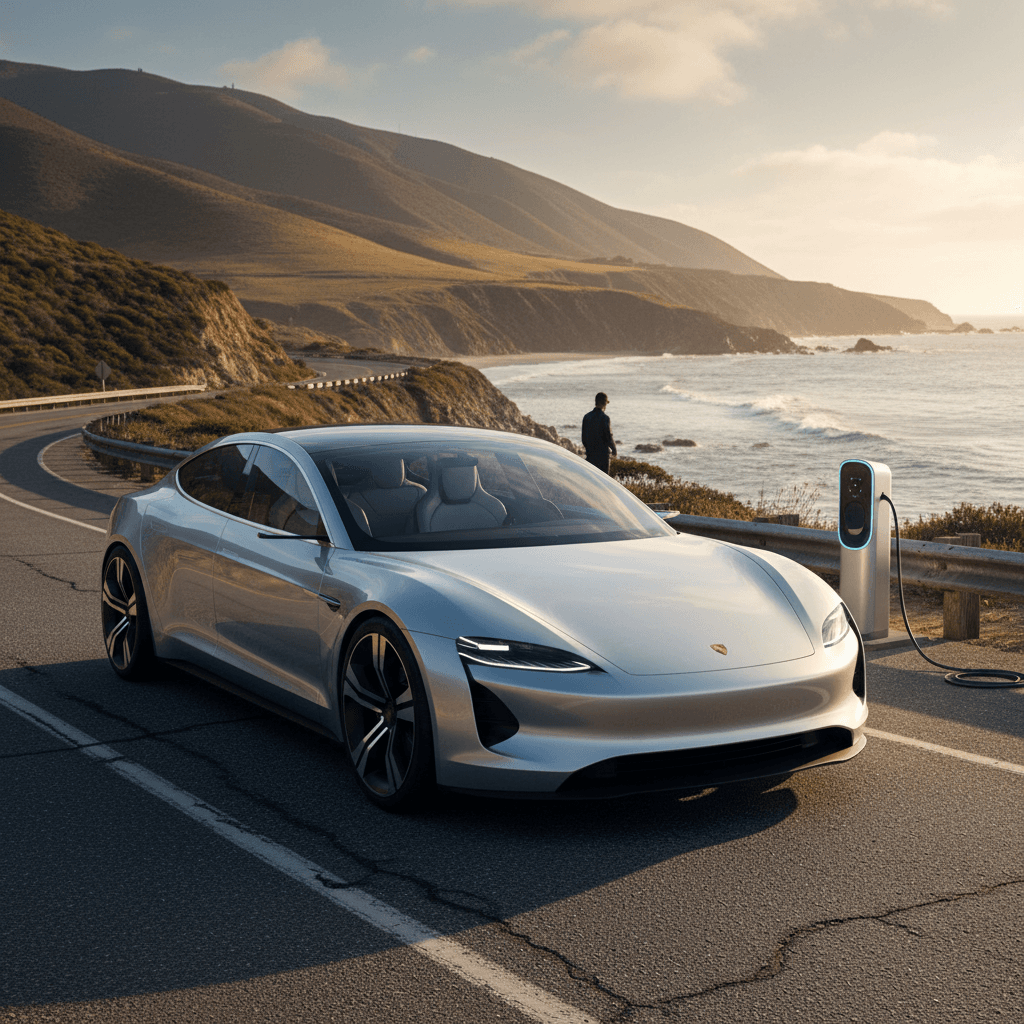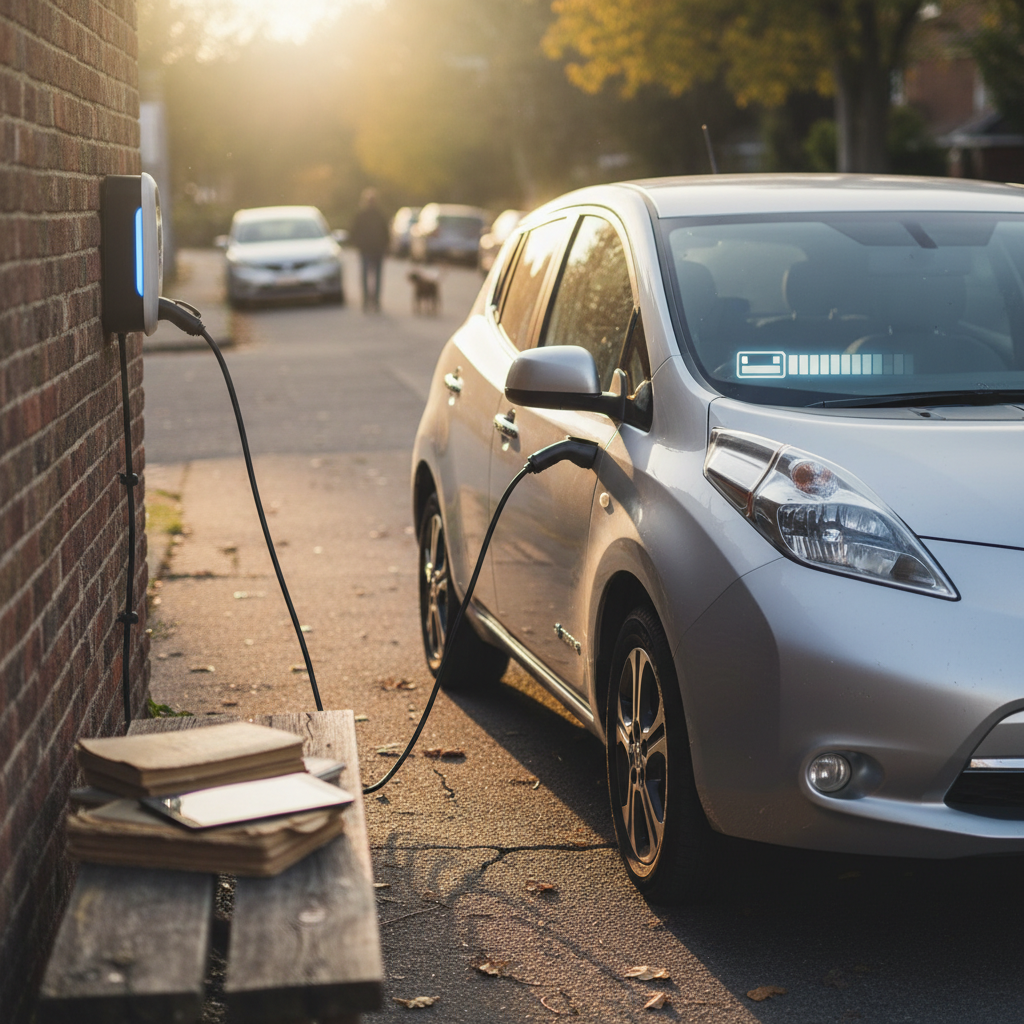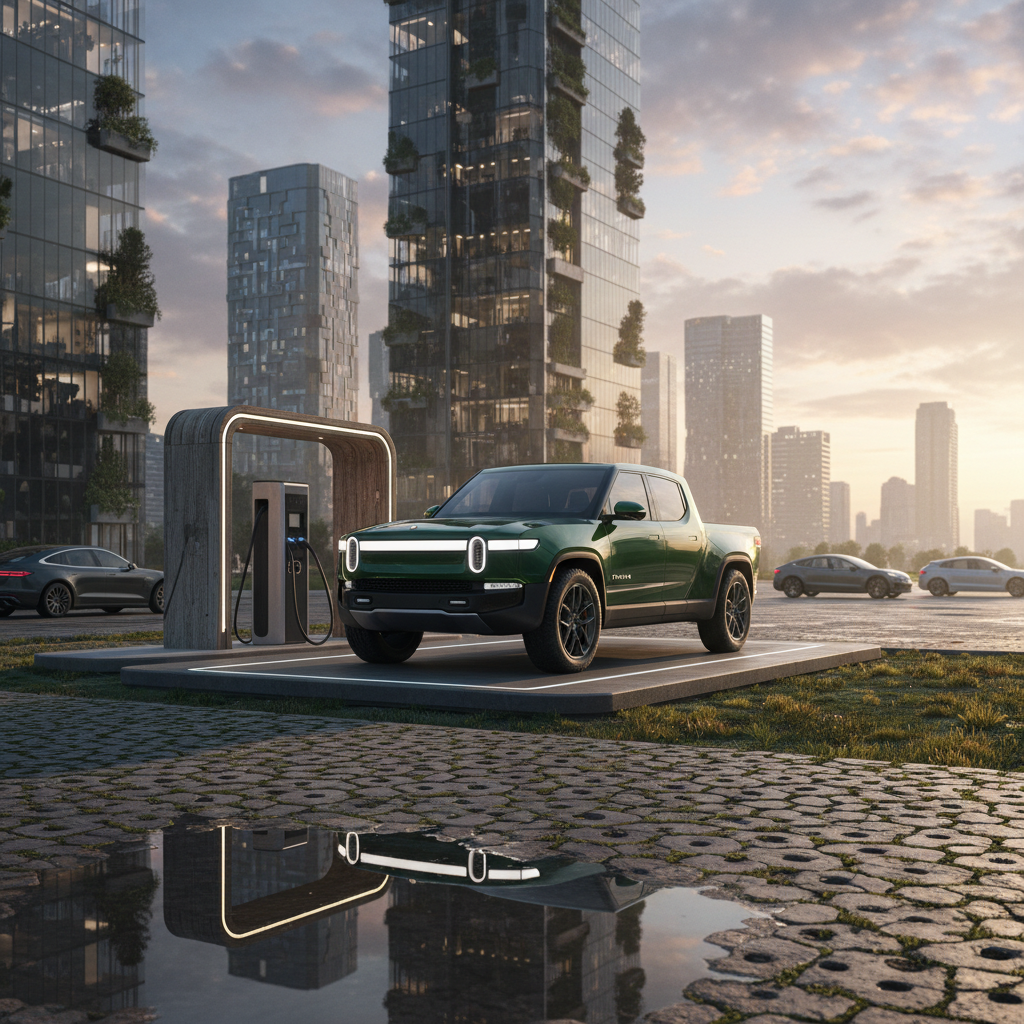You’re looking at a used Tesla Plaid because you want the full absurdity, 1.99‑second 0–60 mph launches, 200 mph bragging rights, the whole Silicon Valley spaceship, but you’d rather not light six figures on fire. The good news: in late 2025, a used Model S Plaid is one of the biggest performance bargains in the EV world… if you buy it with your eyes open.
Fast context
Why a used Tesla Plaid is suddenly a smart buy
Tesla Plaid in context: speed vs. money
Tesla has cut prices, ramped production, and flooded the used market. Analysts now estimate that average used Tesla prices sit slightly below the wider used‑car market, and the Model S is not immune. For the Plaid, that means a car that stickered in the mid‑$120k range in 2021–2022 can now show up in the $70k–$90k band, with outliers above and below depending on miles, condition, and options.
At that level you’re cross‑shopping M5s, AMGs, and 911s with far less straight‑line drama and much higher running costs. The Plaid is an overachiever: ludicrous performance, a massive hatchback trunk, and electricity as fuel. The catch is that it’s still a Tesla, meaning software magic and occasional quality gremlins live in the same house.
Who the used Plaid fits best
Model S Plaid specs: numbers, but in real life
On paper, the Plaid is an internet comment thread come to life. The latest U.S. spec Model S Plaid lists 1,020 hp from a tri‑motor all‑wheel‑drive setup, with an EPA‑rated 368 miles of range and up to 250 kW DC fast‑charging on V3 Superchargers. Tesla quotes 1.99 seconds 0–60 mph (with rollout) and a 200 mph top speed with the right hardware and tires.
Tesla Model S Plaid: key specs that matter used
Headline numbers you should actually care about when shopping the used market.
| Spec | What Tesla Says | What It Means Used |
|---|---|---|
| Powertrain | Tri‑motor AWD, ~1,020 hp | All Plaids are tri‑motor; no power upgrades to chase. |
| 0–60 mph | 1.99 s (with rollout) | Expect ~2.1–2.3 s in the real world on good pavement. |
| Top speed | 200 mph (with upgrade) | Irrelevant for 99.9% of buyers; more brag than reality. |
| EPA range | ~368 mi (19" wheels) | Plan on 280–320 mi highway in normal use when new; less with big wheels or in winter. |
| Battery | ~100 kWh usable | Big pack, lots of thermal management; health varies with fast‑charging history. |
| DC fast charge | Up to 250 kW | Great on road trips, but repeated high‑rate charging can age the pack faster. |
| Warranty | 4 yr/50k basic; 8 yr/150k battery & drive | Huge factor for used buyers, many 2021–2022 cars still have strong coverage left. |
Specs shown are representative of current U.S. Plaid models; early cars are broadly similar.
Don’t over‑index on the 0–60 time
How much does a used Tesla Plaid cost in 2025?
As of late 2025 in the U.S., a realistic pricing band for a used Tesla Model S Plaid looks roughly like this (actual listings will wander, but these ranges will orient you):
Typical used Tesla Plaid price ranges (U.S., late 2025)
Approximate retail asking prices. Private‑party sales may skew slightly lower; certified or low‑mile examples skew higher.
| Model year & miles | Typical range | What you’re getting |
|---|---|---|
| 2021 • 40k–70k miles | $65,000–$78,000 | First‑year Plaids, often with yoke steering and early trim quirks; still under battery/drive warranty. |
| 2022 • 25k–60k miles | $72,000–$85,000 | Sweet spot for many buyers: most early bugs ironed out, plenty of warranty left. |
| 2023 • 15k–40k miles | $80,000–$92,000 | Newer interiors and incremental software refinements; nearing half‑price vs. a new build when heavily optioned. |
| 2024–2025 • under 20k miles | $90,000+ | Lightly used, often ex‑lease or demo; pricing shadows new Plaid MSRPs that hover just under $100k. |
Prices assume clean title, no major accident history, and reasonable service records.
Why prices bounce around so much
Remember that Plaid was designed as a halo car. The original buyers often optioned them heavily, drove them hard, and churned out of them quickly. That’s why some of the best values you’ll see are two‑to‑three‑year‑old examples that have already taken their big first depreciation hit.
Depreciation: the Plaid’s superpower (for you)
Tesla’s aggressive price cuts and growing competition have dented used values across the lineup. Average used Tesla prices are now slightly below the broader used‑car market, and the Model S, as the older flagship, gets hit harder than the mass‑market 3 and Y. From your side of the table, that’s an opportunity.
How Plaid depreciation works in your favor
Three reasons a used Plaid is smarter than a new one right now
1. Big first‑owner hit
Early Plaid buyers paid peak pricing and often added pricey options. By year 3–4, it’s common to see 25–35% off original MSRP even on clean, relatively low‑mile cars.
2. Performance doesn’t fade
Batteries age gradually, but the car doesn’t get slower in any meaningful way. A cared‑for 2021 Plaid is still monumentally quick in 2025.
3. Tech ages better than paint
Frequent over‑the‑air updates keep the UX and driver‑assist features feeling current. Scratches and curb rash matter; the software stack mostly doesn’t age the way analog cars do.
Look past the odometer
Battery health, warranty and Plaid-specific concerns

The single most expensive component in any used EV is the battery, and the Plaid’s ~100 kWh pack is a big, sophisticated piece of hardware. Tesla backs the Model S Plaid with an 8‑year / 150,000‑mile battery and drive unit warranty, with a minimum 70% capacity retention clause. For 2021 cars, that means coverage typically runs into 2029 if mileage stays under the cap.
- Early, aggressive Supercharger use (always to 100%) can accelerate degradation.
- Sustained high‑speed driving and frequent full‑throttle pulls create thermal stress.
- Cars parked long‑term at very high (or very low) state of charge age the pack faster.
- Plaids with 21" wheels see lower real‑world range and slightly higher consumption.
Never skip a battery health report
Beyond the pack itself, remember that Plaid relies heavily on the high‑voltage drive units, onboard chargers, and the main computer. Tesla has had several hardware‑related recalls in recent years for issues affecting safety systems and cameras; make sure any open recalls are completed on the car you’re considering.
Common issues on used Plaids (and what’s hype)
Real‑world issues we actually see
- Trim and fit quirks: Misaligned panels, wind noise from frameless doors, occasional squeaks and rattles.
- Suspension wear: Heavy car + big wheels = bushings and control arms that may need refreshing earlier than in a lighter sedan.
- MCU and camera glitches: Some cars have had issues with the central screen or cameras; many are addressed via recall or OTA update, but verify.
- Brake shudder or fade: Track days and hard driving can cook the friction brakes. Look for warped rotors or upgraded pads/rotors.
Overblown internet mythology
- “All Plaids eat their batteries”: There’s no evidence of systemic pack failures specific to Plaid; abuse and poor charging habits are the culprits in the problem cars.
- “The yoke is unusable”: Many owners adapt quickly. Tesla has also offered a round wheel in later builds, and some early cars have been retrofitted.
- “Plaid is unreliable by nature”: It’s a complex car, but many do high mileage with minimal drama. Data shows EVs have more issues on average than gas cars, but Teslas sit mid‑pack among EV brands.
Mods are a yellow flag
How to inspect a used Tesla Plaid like a pro
Used Tesla Plaid inspection checklist
1. Verify software, options and FSD
In the car’s software menu, confirm whether Enhanced Autopilot or Full Self‑Driving are actually enabled, they don’t always transfer on private sales. Don’t pay FSD money for a car that only has basic Autopilot.
2. Pull full vehicle and service history
You want more than just a Carfax. Look for repeated visits for the same issue, big collision repairs, or cluster of camera/MCU repairs that might hint at a deeper electrical problem.
3. Get a real battery and charging profile
Ask for a professional <strong>battery health report</strong> that estimates usable capacity and logs fast‑charging behavior. With Recharged, this is built into the Recharged Score so you see how the previous owner treated the pack.
4. Inspect wheels, tires and brakes
Curb‑rashed 21" wheels and mismatched tires tell you this Plaid has had a rough life. Check rotor surfaces, pad thickness, and feel for shudder under hard braking on the test drive.
5. Test all driver‑assist and safety systems
On a short drive, engage Autopilot on a highway, test lane‑keep, adaptive cruise, cameras, parking sensors, and the horn, lights, and wipers. Any weird behavior deserves attention before you sign.
6. Look and listen for suspension wear
On a rough road, listen for clunks or knocks over bumps, and notice how the air suspension transitions between height modes. Excess play or noise may mean upcoming suspension work.
How Recharged handles Plaid inspections
Financing, insurance and running costs
A used Tesla Plaid is still a luxury car. You may be paying less than the original owner, but lenders and insurers know exactly what it is: a 1,000‑hp family missile. Budget accordingly.
What it actually costs to live with a Plaid
Beyond the sticker price
Financing a used Plaid
Many banks treat late‑model Teslas like any other premium car, but not all lenders love $70k–$90k used EVs. Using Recharged, you can pre‑qualify for financing online with no impact to your credit and compare terms before you fall in love with a specific car.
Insurance realities
Expect higher premiums than a Model 3 or Y. The Plaid’s performance, aluminum body, and complex electronics push repair costs up. Shopping quotes before you buy can save you a nasty surprise.
Running costs & charging
Electricity is cheaper than premium gas almost everywhere in the U.S., and maintenance is mostly tires, brake fluid, and the odd cabin filter. If you do lots of road‑tripping on Superchargers, factor in those DC fast‑charge costs too.
Home charging is non‑negotiable
Why buy a used Plaid through Recharged?

If you’re going to buy a 1,000‑hp used luxury EV, you want fewer unknowns, not more. That’s the whole reason Recharged exists: to make used EV ownership simple and transparent, especially with high‑stakes cars like the Plaid.
- Every Plaid on Recharged comes with a Recharged Score Report that includes verified battery health, fast‑charging history, and fair‑market pricing analysis.
- You can pre‑qualify for financing online with no impact to your credit, then tweak terms from your couch.
- Already have an EV (or gas car)? Use our trade‑in or instant offer tools, or consign your car so we sell it for you.
- Nationwide delivery and a fully digital process mean you can buy a Plaid in another state without playing airport roulette.
- Need a second opinion? Our EV specialists can walk you through Plaid‑specific questions, range, charging habits, performance, you name it.
Try before you wire
Used Tesla Plaid: FAQ
Frequently asked questions about used Tesla Plaid models
Bottom line: who should actually buy a used Plaid?
A used Tesla Plaid is not a sensible car. It is, however, a sensational one: a family hatchback that just happens to out‑drag million‑dollar exotics, sip electrons instead of fuel, and commute in silence on a Monday after humiliating physics on Sunday. That mix is unique, and thanks to depreciation, it’s now available at prices that make German performance sedans look slow and a little old‑fashioned.
You shouldn’t buy one if you don’t have home charging, if you flinch at the idea of firm‑ish ride quality on big wheels, or if you’d lose sleep over an occasional Tesla software quirk. You should buy one if you’re the sort of person who will actually use the performance, appreciates the Supercharger network, and is willing to be an engaged, informed owner.
If that sounds like you, the next step is simple: find a Plaid with verified battery health, clean history, and honest pricing. That’s exactly the slice of the market Recharged curates, so you can enjoy the ridiculous part of Plaid ownership without the roulette wheel of buying blind.



